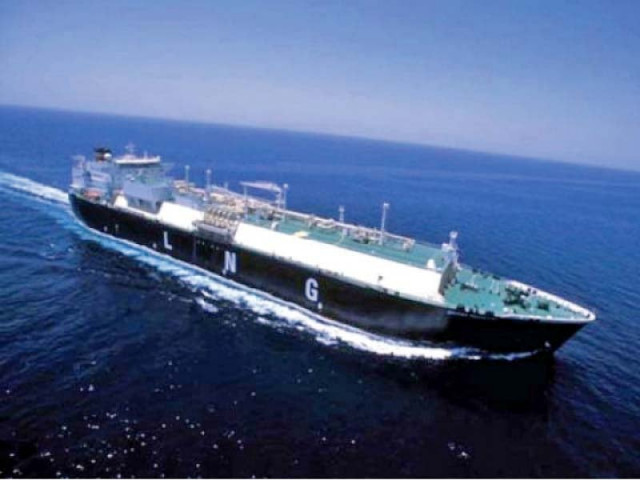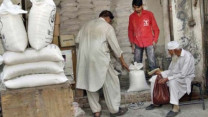Govt intervention destabilises energy market
Experts say market should be free to determine petrol, gas prices

Experts say market should be free to determine petrol, gas prices. PHOTO: FILE
As Pakistan has started importing liquefied natural gas (LNG), fresh competition has emerged in the market. Some experts say petrol consumption is rising and is expected to exceed high-speed diesel (HSD) demand in the next three years.
Govt requests ADB to double loan to $800m
CNG consumers and textile industry in Punjab are using imported gas compared to consumers of other provinces. Recently, the government announced a cut in locally produced natural gas prices for industries, which has resulted in protests from Punjab industrialists who are using imported gas.
For the past eight months, the government had not increased petrol prices, leading to a reduced difference between the price of petrol and imported gas for CNG consumers. According to experts, due to government’s intervention, petrol will continue to rule the market.
About 3.7 million cars were on CNG and of these 2.5 million were running in Punjab. Now, about 0.5 million vehicles in Punjab are using LNG.
The CNG association hopes that two million cars will switch to LNG. All Pakistan CNG Association Chairman Ghiyas Paracha told The Express Tribune that unchanged petrol prices for the last eight months had narrowed the gap between LNG and petrol.
Energy sector woes
He said the government should not intervene and let the market determine the prices.
The business would become unfeasible if the government continued to intervene and it would be difficult for CNG retail outlets to maintain the difference between prices of petrol and LNG, Paracha added.
Oil industry sources say gasoline import will continue to grow at minimum 15% a year and in the next three years Pakistan will be consuming more gasoline than gas oil.
They say the gas oil market will not grow and import will remain stagnant at 3-3.5 million tons per year.
LNG imports have slightly affected furnace oil consumption in the last 12 months and the same trend is expected to continue for the next two years. It will impact the furnace oil market more when an additional two to three LNG terminals start functioning in the country.
In the short term, gasoline imports will increase by almost a million tons per year due to less LNG imports. In the medium term, if more LNG terminals come online, there may be a slight decrease in gasoline imports.
However, in the long term when LNG imports reach more than 2 billion cubic feet per day, furnace oil imports may come down further but that depends greatly on prices of LNG and furnace oil. Since refineries’ production is stagnant, the present trend of imports will continue till LNG is available in abundance.
Another loan for the energy sector
Currently, LNG imports are made through one terminal (ETPL) having capacity of 400 mmcfd. The gas is distributed to fertiliser, industrial, domestic and energy sectors.
A new terminal having capacity of 600 mmcfd is at an advanced stage of implementation. A new pipeline from Karachi to Lahore having capacity of 1.2 bcfd is also at an advanced stage of execution.
Petroleum consumption stood at 19.1 million tons in 2011-12 and jumped up to 22.9 million tons in 2015-16. Increase in demand for motor gasoline has been attributed to the significant increase in sales of two, three and four wheelers mainly due to very low interest rates. Other reasons that led to the increase in demand for motor gasoline include a significant decrease in smuggling of motor gasoline from Iran due to strict monitoring at borders, subsidy withdrawal in Iran, lower price compared to neighbouring countries, closure of CNG stations due to gas shortage and high sales of portable generators due to excessive power shortages.
The government has taken the initiative of introducing new grades of motor gasoline from November 2016. Under the plan, RON92 motor gasoline has been introduced in the local market.
HSD consumption has also increased due to a significant decrease in smuggling from Iran. Closure of CNG stations resulted in re-conversion of heavy vehicles to HSD. Increased consumption by commercial/industrial generators was due to excessive power shortage. It was also due to increased yield in the agricultural sector.
Market sources say power plants are operating at maximum output levels to meet demand for which consumption of fuel oil has increased. However, some of the load of fuel oil has been shared by the supply of imported LNG to these plants. Until and unless there is necessary infrastructure for handling and transportation of imported LNG, consumption of fuel oil will remain the same.
The writer is a staff correspondent
Published in The Express Tribune, December 5th, 2016.
Like Business on Facebook, follow @TribuneBiz on Twitter to stay informed and join in the conversation.



















COMMENTS
Comments are moderated and generally will be posted if they are on-topic and not abusive.
For more information, please see our Comments FAQ